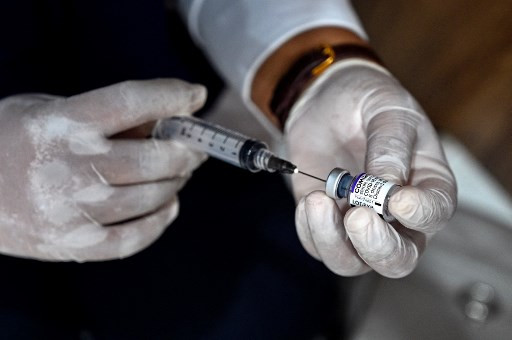Popular Reads
Top Results
Can't find what you're looking for?
View all search resultsPopular Reads
Top Results
Can't find what you're looking for?
View all search resultsIndonesia reports first Omicron deaths
The government remains optimistic that the worst-case scenario can be avoided in the coming months, especially leading toward public holidays, when mobility is expected to rise.
Change text size
Gift Premium Articles
to Anyone
M
ore than a month after the Omicron variant was first discovered in the country, the highly transmissible but less fatal variant has claimed its first fatality amid an uptick in COVID-19 cases, prompting calls for the government to expedite vaccination of the elderly.
Health Ministry spokesperson Siti Nadia Tarmizi told The Jakarta Post on Sunday that the country’s first two Omicron-related deaths were a 64-year-old man and a 54-year-old woman with “severe comorbidities”.
The man, Nadia said, was a local transmission case and died in Sari Asih Hospital in Ciputat, on the outskirts of Jakarta, while the woman was an imported case. She recently traveled to the Netherlands and was believed to have contracted the virus there before testing positive upon returning to Indonesia. She died at the Sulianti Saroso Infectious Diseases Hospital in North Jakarta.
“He was unvaccinated and had been diagnosed with hypertension and kidney complications, while the woman, although vaccinated, had severe diabetes,” Nadia said.
Indonesia’s first two Omicron-related deaths came amid a national uptick in COVID-19 figures, with the country reporting 3,200 new cases on Saturday, the highest in over four months. It remains unclear how many of the cases are Omicron infections.
By Saturday, the tally of Omicron cases was 1,161 since the first case was reported in mid-December.
COVID-19 task force spokesperson Wiku Adisasmito said on Thursday, without revealing whether the cases were of Omicron or Delta or any other variants, that Indonesia had reported an increasing number of coronavirus cases in the past three weeks, or since the start of the year. Active cases, he said, had also jumped to 8,600 cases last week, compared to only 5,400 cases a week before.
Although authorities had initially attributed Indonesia’s case spike to international arrivals who tested positive for the virus at the country’s entry points, Wiku said COVID-19 infections since Jan. 15 had been dominated by cases of local transmission.
“To prevent more local transmission, [we are] calling on the public to closely follow health protocols,” Wiku said during a press briefing, while also urging the public not to travel abroad.
Read also: Govt confident in Omicron response, urges discipline
The number of COVID-19 daily deaths, however, has largely remained low – at below 10 – since the first Omicron case was discovered in the country.
Although cases were expected to still be on the rise before reaching a peak in February or March, Wiku said the government remained optimistic that the worst-case scenario could be avoided in the coming months, especially leading toward public holidays, when mobility is expected to rise. This includes Idul Fitri, the biggest Muslim celebration in the country, which falls in early May this year.
Lackluster mobility restrictions during last year’s Idul Fitri holiday were thought to be partly behind the country’s deadly second wave of cases that was fueled by the transmissible and more deadly Delta variant. The government at the time failed to anticipate hordes of people going on mudik (exodus) before and after the celebrations despite an intercity travel ban.
The Delta wave of cases resulted in the country’s daily death toll hitting an all-time-high of 2,000 deaths in July.
Read also: Yearender 2021: Foreign variants spell trouble for Indonesia’s coronavirus response
Although authorities have assured that Indonesia is in a much better position to deal with the threat of another variant, epidemiologist Dicky Budiman said another deadly wave of cases might be inevitable unless the government could address its vaccination issues.
“Whether it’s the Omicron variant, the Delta variant or the original Wuhan variant, these strains all put the same groups of people at risk: the elderly and those yet to have immunity against the virus, either through vaccination or infection,” he said on Sunday.
Indonesia has so far managed to fully vaccinate about 124 million people, or 59.6 percent of the target population. The government also started to administer a third vaccination dose for the general population on Jan. 12, in a bid to keep public immunity up against the Omicron variant, which is believed to be more transmissible but cause less severe symptoms than those of Delta.
Read also: Govt works to ensure boosters won't outpace primary doses
However, vaccination for the elderly remains lagging, with only 10 million people, or 46 percent of the target population, having been fully inoculated. This is despite 46.8 percent of the country’s 144,000 COVID-19 deaths coming from this age group.
“The two [Omicron] deaths were elderly individuals, and unless the government can address this problem, they will continue to be victims of the Omicron spike,” Dicky added.










